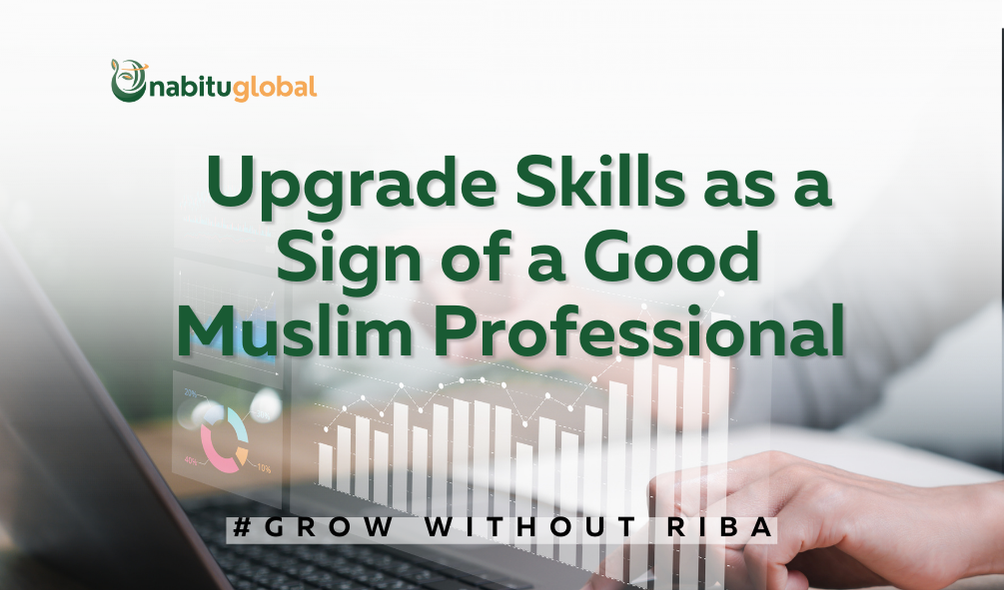Upgrade Skills as a Sign of a Good Muslim Professional
In an increasingly competitive work environment, upgrading skills is one of the keys to achieving success. For a Muslim professional, this is not just about earning a livelihood but also about fulfilling responsibilities as a trustworthy and competent individual. Islam encourages its followers to continually learn and develop themselves, so they can make the best contribution in every aspect of life. Skill enhancement is not just about professionalism but also about spirituality and social responsibility.
Explanation of Surah Al-Qasas Verse 26
Allah ta’ala says in Surah Al-Qasas verse 26:
قالَتْ إِحْدَاهُمَا يَا أَبَتِ اسْتَأْجِرْهُ ۖ إِنَّ خَيْرَ مَنِ اسْتَأْجَرْتَ الْقَوِيُّ الْأَمِينُ
One of the two women said: “My father, take him to work for us, for surely the best person you can hire to work for you is one who is strong and trustworthy”
This verse tells the tale of Musa alaihissalam, who one of Prophet Shu’aib alaihissalam’s daughters recognised as a strong and reliable individual. These two characteristics are essential foundations in the context of professionalism: strength (competence or skills) and trustworthiness. This verse teaches us that to be a good worker, we must have adequate skills and be trustworthy in performing our tasks. In the modern context, this means we must continually enhance our skills to remain relevant and reliable in our professions.
Why Upgrading Skills is Important in Islam
Islam emphasises the importance of hard work and professionalism. Prophet Muhammad, shallallahu alaihi wa sallam, said:
إِنَّ اللَّهَ يُحِبُّ إِذَا عَمِلَ أَحَدُكُمْ عَمَلًا أَنْ يُتْقِنَهُ
“Allah loves if any of you does a job, he does it with itqan (proficiency and earnestness).”
This hadith underlines that a Muslim should always strive to be the best in every job they undertake. Doing a job well is a form of worship and shows our commitment to Islamic values.
Developing skills is also a form of worship. When a Muslim enhances their abilities, they not only improve themselves but also contribute better to society. In Islamic history, many figures became experts in certain fields and made significant impacts. For example, Ibn Sina, known as the father of modern medicine, continuously learned and developed his knowledge, contributing greatly to the medical field. Other figures, like Al-Khwarizmi in mathematics and Al-Farabi in philosophy, also highlight the importance of self-development in Islam.
Also read: Why should we use sharia contracts when doing business?
Ways to Upgrade Skills
There are various ways to enhance skills. Formal education, such as taking courses or specific study programmes, is an effective way. Additionally, training and certification can be paths to deepening knowledge and skills in particular areas. Attending professional training and obtaining certification can open better career opportunities and increase credibility in the eyes of superiors and colleagues.
Self-learning is also very important. Reading books, attending seminars, and learning from practical experiences can greatly help in developing skills. With advancing technology, access to information and knowledge becomes easier, leaving no excuse not to keep learning. E-learning platforms, webinars, and online courses offer numerous opportunities to learn without geographical limitations. Utilising these resources can help a Muslim professional stay at the forefront of knowledge and technology development.
Conclusion
Upgrading skills is a crucial step to becoming a good Muslim professional. By continually learning and enhancing our abilities, we not only become more competent but also more trustworthy in fulfilling the given responsibilities. Skill enhancement reflects our earnestness in fulfilling Allah’s command to always strive to be the best. Let’s make self-improvement a part of our life’s journey so we can make the best contribution to ourselves, our families, society, and the Muslim Ummah as a whole. In accordance with the Prophet Musa alaihissalam’s example in Surah Al-Qasas verse 26, we should always strive to be strong and reliable people.

References
حديث (إن الله يحب إذا عمل أحدكم عملًا فليتقنه) – حديث شريف. (2023, June 12). حديث (إن الله يحب إذا عمل أحدكم عملًا فليتقنه) – حديث شريف. Hadeethshareef.com; حديث شريف. https://hadeethshareef.com/b/
Surat An-Nisa’ Ayat 58. (n.d.). Tafsir al-Quran Online. Retrieved June 26, 2024, from https://tafsirq.com/4-an-nisa/ayat-58#google_vignette
Surat Al-Qasas Ayat 26. (n.d.). Tafsir al-Quran Online. Retrieved June 26, 2024, from https://tafsirq.com/28-al-qasas/ayat-26#google_vignette







